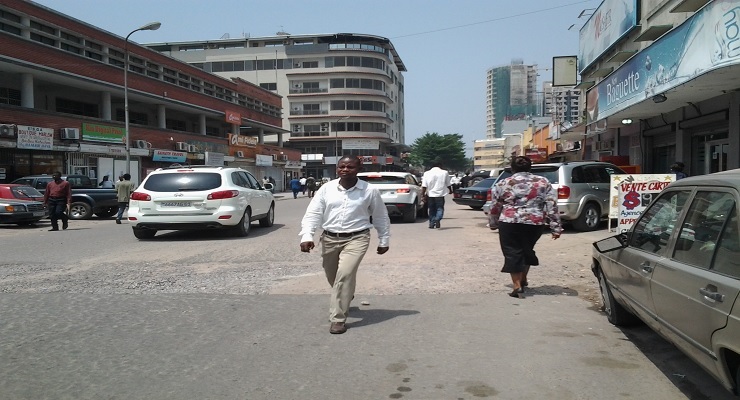
From Voice of America
Congo’s capital was calm Sunday with residents attending church after the Constitutional Court confirmed the presidential election victory of Felix Tshisekedi. It was not clear if the population would heed runner-up Martin Fayulu’s call for non-violent protests against the court ruling.
Tshisekedi said early Sunday that the court’s decision to reject claims of electoral fraud and declare him president was a victory for the entire country.
“It is Congo that won,” said Tshisekedi, speaking to his supporters after the court decision. “It is not the victory of one camp against another. I am engaged in a campaign to reconcile all Congolese. … The Congo that we are going to form will not be a Congo of division, hatred or tribalism. It will be a reconciled Congo, a strong Congo that will be focused on development, peace and security.”
Supporters of his UDPS party celebrated the victory into the early morning hours, in motorcade processions through the capital’s main streets.
But Fayulu’s declaration that he is Congo’s “only legitimate president” and call for the Congolese people to peacefully protest against what he called a “constitutional coup d’etat” threatened to keep the country in a political crisis that has been simmering since the Dec. 30 elections.
The court turned away Fayulu’s request for a recount of the vote, affirming Tshisekedi won with more than 7 million votes, or 38 percent, and Fayulu received 34 percent.
The court judgment, released in the early hours of Sunday, said Fayulu offered no proof to back his assertions that he had won easily based on leaked data attributed the electoral commission. It also called unfounded another challenge filed by Fayulu that objected to the electoral commission’s last-minute decision to bar some 1 million voters from the election over a deadly Ebola virus outbreak.
Fayulu and his supporters have also, outside the court, alleged an extraordinary backroom deal by outgoing President Joseph Kabila to rig the vote in favor of Tshisekedi.
“It’s a secret for no one inside or outside of our country that you have elected me president,” with 60 percent of the votes, Fayulu said in his statement. “I now consider myself the only legitimate president of the DRC.”
Fayulu urged Congolese to take to the streets to peacefully protest. Neither Congolese nor the international community should recognize Tshisekedi, nor obey him, Fayulu added.
Congo’s government on Sunday called Fayulu’s statements “irresponsible.”
“We consider it an irresponsible statement that is highly politically immature. I do not think he has understood the issues that are happening and at the regional level and at the global level with the Democratic Republic of Congo and that’s a shame,” government spokesman Lambert Mende told The Associated Press on Sunday.
The largely untested Tshisekedi, son of the late, charismatic opposition leader Etienne, is set to be inaugurated on Jan. 22. The government is expected to resign in the coming days, and the new National Assembly will be installed on Jan. 26 with a small group of members who will then validate the 500 deputies, the majority of whom belong to Kabila’s Common Front for Congo party.
Many worried that the court’s rejection of the appeal could lead to greater instability in a nation that already suffers from rebels, communal violence and an Ebola outbreak.
“It might produce some demonstrations, but it won’t be as intense as it was in 2017 and 2018,” said Andrew Edward Tchie, research fellow at the International Institute for Strategic Studies.
Burundi’s President Pierre Nkurunziza promptly congratulated the new president-elect in a Tweet on Sunday.
“Through a fully organized electoral process without outside influence and the wisdom of President Kabila, the (hash)RDC has just defended its dignity and sovereignty. The (hash)Burundi congratulates the elected President, HE Felix A. Tshisekedi and the step taken by the Congolese people,” he said.
The Southern African Development Community on Sunday congratulated President-elect Tshisekedi and Congo for conducting elections in a peaceful manner “despite the security and logistical challenges.” The group had last week suggested a recount and a possible unity government.
The 16-nation regional bloc called “upon all Congolese to accept the outcome, and consolidate democracy and maintain a peaceful and stable environment following the landmark elections.” The body called on “all stakeholders to support the President-elect and his government in maintaining unity, peace and stability; and attaining socio-economic development in the DRC. SADC looks forward to a peaceful transfer of power to the President-elect.
Tanzania’s President John Magufuli also sent congratulations on Twitter.
In addition to congratulating Tshisekedi on his election as Congo’s next president, Magufuli praised the people of Congo. “I beseech you to maintain peace,” he wrote.
All of the election results, not just the presidential ones, had been widely questioned after Kabila’s ruling coalition won a majority in legislative and provincial votes while its presidential candidate finished a distant third.
Despite this, Congo, a country of 80 million people, rich in the minerals key to smartphones around the world, is moving close to its first peaceful, democratic transfer of power since independence in 1960.
Leave a Reply